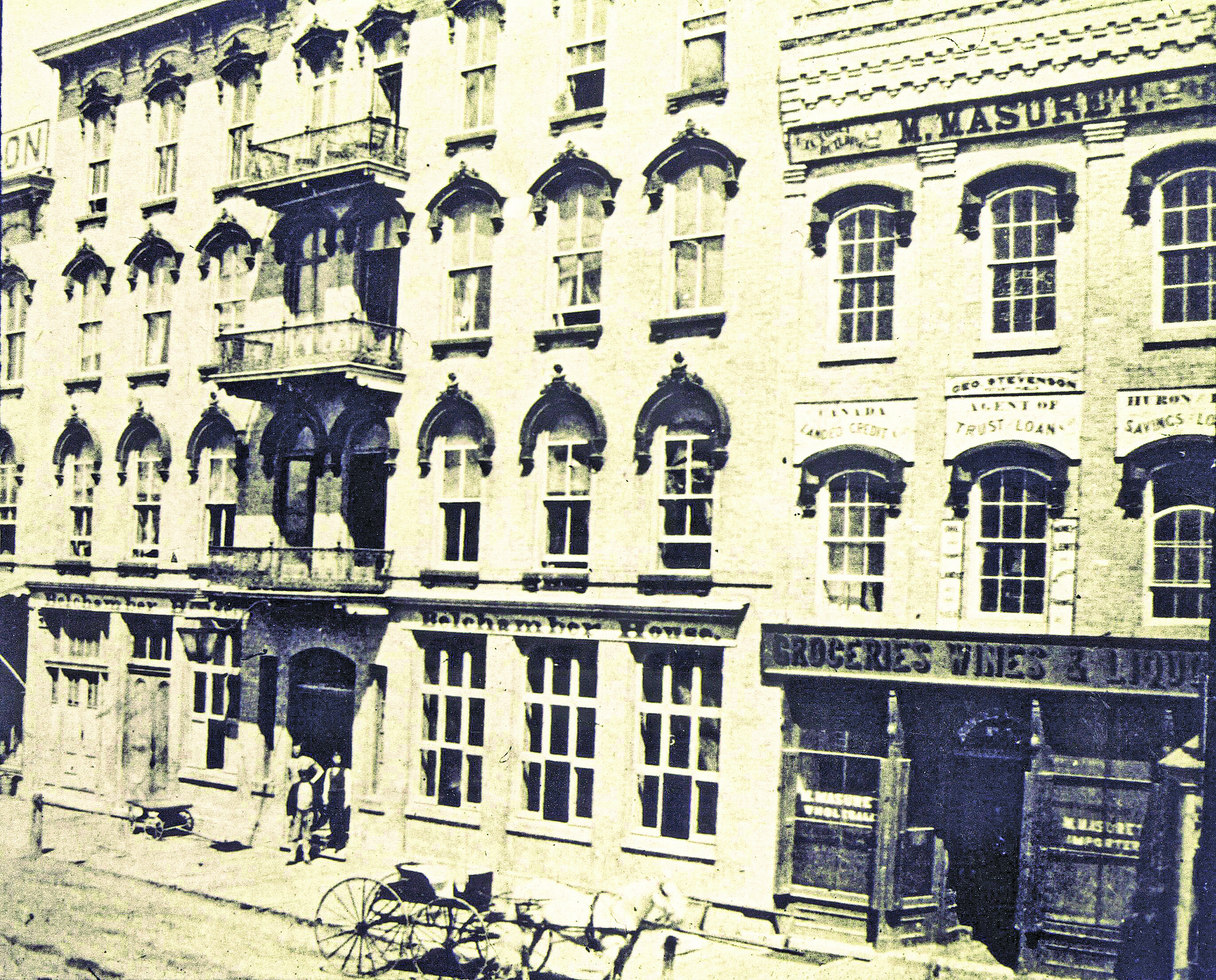Phil Egan
The early inhabitants of Sarnia had an up and down affair with alcohol. Up and down – but mainly down.
In a letter by the Reverend John Douce to his missionary predecessor, James Evans, dated ‘Port Sarnia, March 1, 1839, Douce wrote, “The swearing, drunkenness, and wickedness on the river, and especially in Sarnia village, frequently presses down my mind.”
Local Methodist, Baptist and Presbyterian churchgoers saw liquor as a predatory evil, luring men to squander their paycheques and jeopardize their families’ welfare. Temperance advocates — and there were many of them — were active proponents of ridding the village entirely of intoxicating liquors.
Early founders of Sarnia including the Vidal family and Malcolm Cameron believed they were making headway in the constant battle against liquor. Testifying to the splendid work underway, Cameron wrote in a letter dated Port Sarnia, Dec. 18, 1840 – “Our temperance society has progressed wonderfully, and we have driven intemperance almost from us.”
Well, not quite. Decades would pass before Sarnia’s first experiment with self-imposed prohibition. It would come partly at the hand of Sarnia’s favourite son, Alexander Mackenzie.
Born on Jan. 28,1822, in Logierait, Perthshire, Scotland, Mackenzie immigrated to Canada 20 years later, joining his six brothers in Sarnia. He quickly gained fame as a stonemason and building contractor. By nature, he was a pragmatic reformer, but he viewed drunkenness and overindulgence in liquor as both a sin and a waste of time and productivity. Piety and self-discipline were key components of his personality.
Upon his arrival in Sarnia, Mackenzie became active in the temperance movement, joining the Port Sarnia Temperance Society and, in 1854, supervising the construction of its first temperance hall. In politics, Mackenzie won a seat in the provincial legislature in 1861. With Confederation in 1867, Mackenzie successfully made the transition to the federal parliament, becoming Liberal leader and eventually, prime minister.
With Mackenzie’s ascension to the ultimate position of power in the land, the temperance advocates, aware they had a philosophical brother in Mackenzie, pushed strongly for national prohibition. Among those who pressed hard was fellow Sarnian Alexander Vidal, who was the first president of the Dominion Alliance for the Total Suppression of the Liquor Traffic.
A compromise was reached in 1878 by the passage of the Canada Temperance Act. This new law permitted local communities to make their own decisions with respect to the issue of liquor laws.
Following a county plebiscite, Lambton adopted prohibition and forbid the sale of liquor in taverns beginning on May 1, 1886. Temperance advocates were delighted. Tavern owners were demoralized.
It would be 40 years before Ontario would begin to relax its liquor laws with the creation of the LCBO in 1927.


